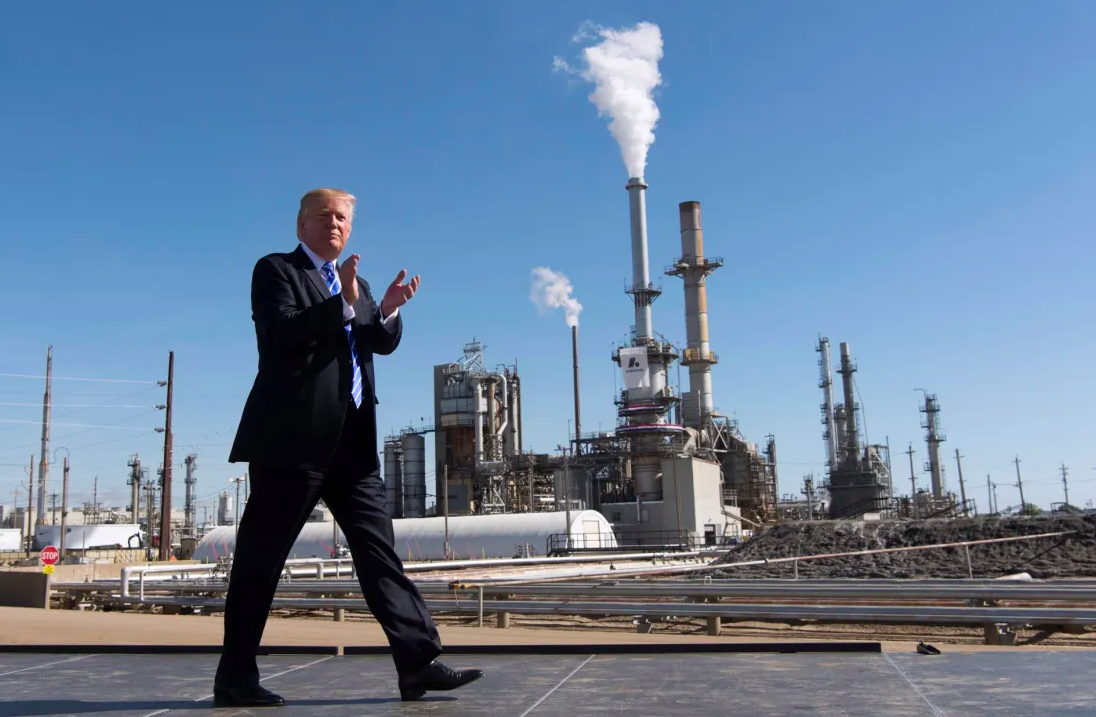Donald Trump will be president of the United States once again after winning this week’s election. It is likely that his administration will take a sledgehammer to climate policy.
Ultimately, it was not even close as Trump defeated Kamala Harris to return to the White House as the first elected felon to serve as president. Beyond his numerous pledges to cut immigration and disrupt economic policy, climate and energy will also be impacted.
One of Trump’s most notable acts as president was taking the US out of the international pact on climate change, the Paris Agreement, which aims to limit global warming to 1.5 degrees Celsius this century.
Joe Biden took the US back into the agreement as soon as he took office but Trump has said he will reverse that policy. He might also cut the country’s ties with the UNFCCC, which would be harder to correct as it would take a majority in the senate to push through.
Trump also despises renewable energy. Over the years he has called wind energy a “bird-killer” and wrongly suggested turbines cause cancer. He also believes that solar panels are a Chinese plot to run the global economy.
Along with his pledge to increase oil and gas production, Trump has also indicated he will pause new permits for wind farms, mirroring Biden’s pause on new liquefied natural gas export terminals.
Local governments still have a lot of power to set their own regulatory regimes though. Texas, the country’s biggest fossil fuel producing state, is also the biggest generator of electricity from wind power.
It is still unclear what Trump will decide to do with Biden’s landmark Inflation Reduction Act (IRA), a package of reforms, tax breaks and financing worth hundreds of billions of dollars for clean energy and other economy-boosting sectors.
Republicans railed against the law when it was first proposed by the White House but have since benefited greatly from its impact. Financing has flooded in and jobs have been created as a result, reducing the likelihood that the IRA will be ditched entirely.
Trump will instead be limited to tweaking what the IRA incentivises. Hydrogen production from fossil fuels and the manufacturing of internal combustion engine cars, for example, could be given extra perks to put them on the same footing as green alternatives.
Tesla boss Elon Musk has fought Trump’s corner this campaign and could be given a role in his administration. That means that electric vehicles, specifically those made in America, might be spared the president-in-waiting’s ire.
But Trump is very unpredictable and has already got what he needs from Musk: help winning the election. Whether that buys Musk clout during Trump’s presidency is unclear.
What is clear is that Donald Trump’s forthcoming four years in charge of the United States puts a final nail in the coffin of any chances the globe had at keeping the Paris Agreement’s 1.5 temperature target in play. It will now be all about keeping as close to 1.5 as possible, as every fraction of a degree matters.
Now it remains to be seen whether Trump’s impact spurs the international community into further action or kills momentum and enthusiasm for the kind of climate action that is urgently needed. Next week's COP29 climate summit could be an initial litmus test for that: will countries double down to compensate for Trump? Or will they give up?
Want more updates and analysis of what is happening in the world of energy and climate? Interested in finding a job in the sector or more information about public tenders? Sign up to our Energy Rundown newsletter here!

